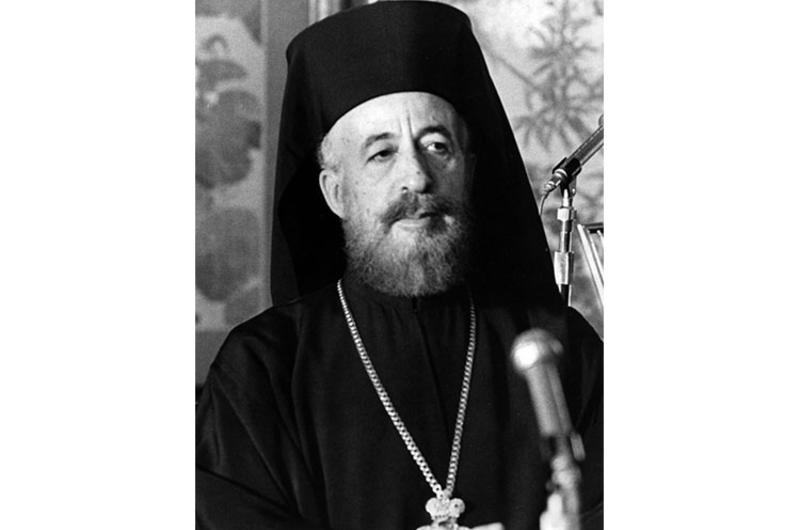Makarios hopeful of Mideast peace

Archbishop Makarios, the president of Cyprus, talks to reporters in Tokyo in November, 1970.
By Hal Drake | Stars and Stripes November 11, 1970
TOKYO — Archbishop Makarios, president of Cyprus, said Monday the death of Gamal Abdel Nasser could imperil Mideast peace prospects because Nasser's successor, lacking his power and influence, might not be able to get other Arab leaders to accept a negotiated settlement.
Without naming President Anwar Sadat, Markarios told Japanese and foreign newsmen at the Gehinkan (government guest house):
"Nasser was a very influential person in the whole Arab world and his death might create certain difficulties, meaning that his successor would perhaps not have the same influence as Nasser. In case the president agreed to certain settlement of differences, he might have trouble convincing other Arab leaders."
But, Makarios added quickly, "In any case, I don't think the situation in the Middle East will become worse because of the death of President Nasser."
The bearded prelate said his government solidly favors American efforts for a negotiated settlement and that he is encouraged by signs of a prolonged cease-fire.
Touching on problems in his own country, where there has been a long silence between a Turkish minority and a large Greek population that clashed violently a few years, ago, Makarios denied reports that a formal agreement on the status of the two factions was pending.
lie said that all Cypriots, irrespective of national origin, religion or language, should have "equal rights."
"I do not think, I will use the statement, peaceful existence is difficult," Makarios said. "They have lived together for years and I don't see why they cannot in the future."
Makarios visited Japan en route home from an appearance at the UN General Assembly. Immediately after the press conference, he left for Nicosia.



